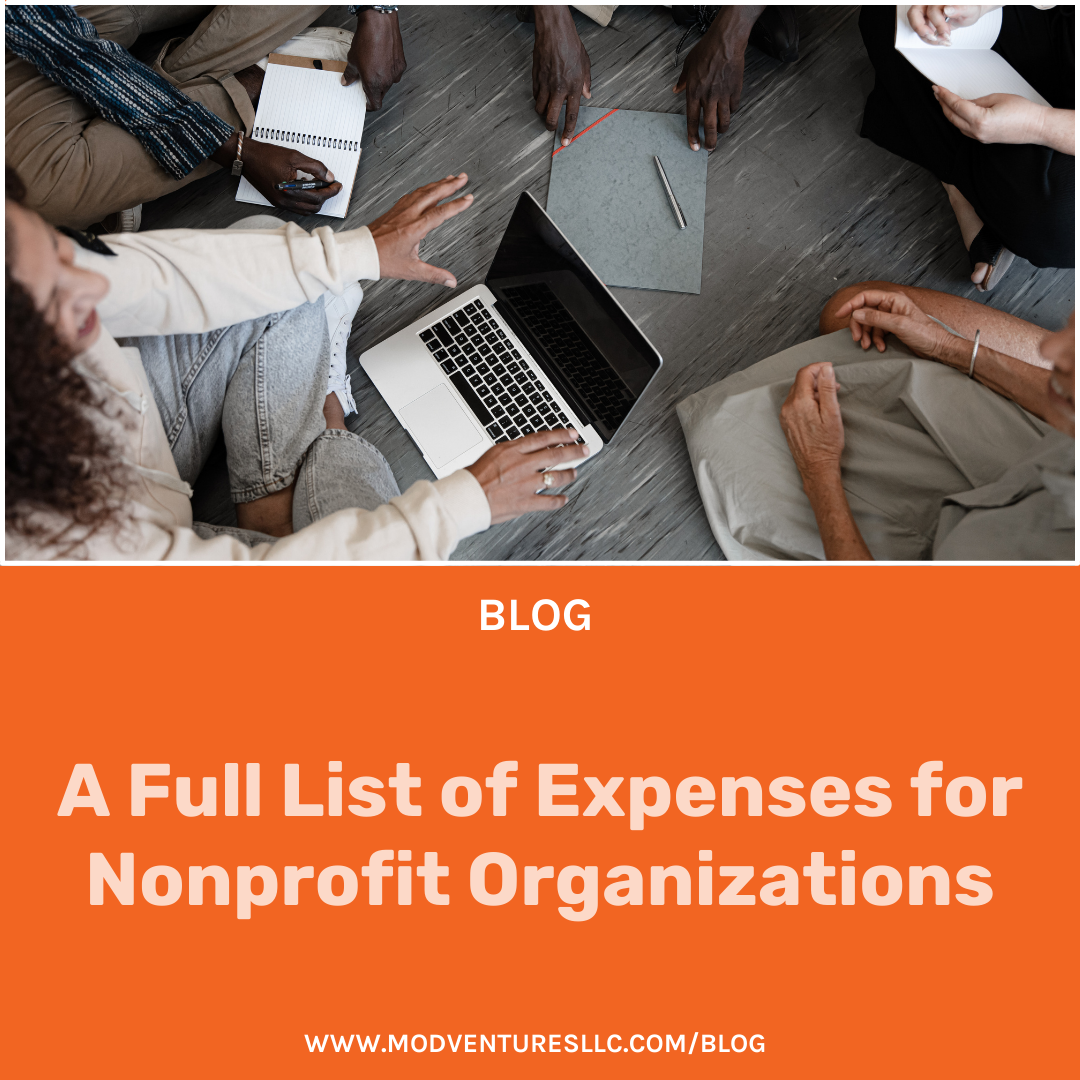By: Gabrielle Luoma CPA, CGMA
By: Gabrielle Luoma CPA, CGMA
Running a nonprofit organization is no small feat, and keeping track of expenses can be a major part of the job. Whether you’re just starting out or looking to get a better handle on your finances, having a clear understanding of your expenses is crucial.
Here’s a friendly guide to help you navigate the ins and outs of nonprofit expenses:
6 Expenses to Account for in Your Nonprofit Organization
While we would love to list every possible expense, different organizations with different missions (for example, education equity nonprofits vs. a fraternity) will have different expenses. Instead, we’ve compiled a list of some of the most common expenses your nonprofit should account for:
#1. Operational Costs
These are the everyday expenses that keep your nonprofit running smoothly. Think of them as the backbone of your organization.
- Rent and Utilities: Your office space and the bills that come with it.
- Office Supplies: Paper, pens, and all those little things that keep the office functional.
- Technology: Computers, software, and IT support.
- Insurance: Liability, property, and worker’s compensation insurance.
#2. Program Costs
Program costs are directly related to the services or missions your nonprofit provides. These expenses can vary widely depending on the nature of your organization.
- Staff Salaries: The wages for employees who run your programs.
- Materials and Supplies: Anything from books and educational materials to food and clothing.
- Travel Expenses: Costs for staff to travel for program-related activities.
- Contracted Services: Payments to external service providers who help with your programs.
#3. Fundraising Expenses
Fundraising is essential for nonprofits, but it also comes with its own set of costs. Here’s what you might expect.
- Event Costs: Venue rental, catering, and entertainment for fundraising events.
- Marketing and Advertising: Costs for promoting your fundraisers, such as social media ads, flyers, and email campaigns.
- Fundraising Software: Tools and platforms that help manage donations and campaigns.
- Thank You Gifts: Tokens of appreciation for your donors, like branded merchandise or thank you cards.
#4. Administrative Expenses
Administrative costs are the behind-the-scenes expenses that are necessary to keep your nonprofit compliant and efficient.
- Accounting and Legal Fees: Costs for bookkeeping, audits, and legal advice.
- Board Expenses: Travel and accommodation for board members attending meetings.
- Training and Development: Costs for professional development and training for staff and volunteers.
- Memberships and Subscriptions: Fees for memberships in professional organizations and subscriptions to relevant publications.
#5. Marketing and Outreach
Getting the word out about your mission is crucial, and it comes with its own set of expenses.
- Website Maintenance: Hosting fees, domain registration, and web design updates.
- Print Materials: Brochures, posters, and newsletters.
- Social Media Management: Tools and services to manage your online presence.
- Public Relations: Costs associated with media relations and press releases.
#6. Volunteer Expenses
Volunteers are the heart and soul of many nonprofits, and supporting them requires some investment.
- Training Programs: Costs to train and onboard volunteers.
- Volunteer Recognition: Events or gifts to show appreciation for your volunteers’ hard work.
- Reimbursement: Covering out-of-pocket expenses for volunteers, like travel or meals.
Tips for Managing Nonprofit Expenses
Keeping track of all these expenses can be a bit overwhelming, but with a few good practices, it can be much more manageable.
- Budgeting: Create a detailed budget that includes all your expected expenses. This will help you stay on track and avoid surprises.
- Regular Monitoring: Keep an eye on your expenses regularly. This way, you can catch any discrepancies early and adjust as needed.
- Transparency: Be transparent with your donors about how their money is being used. This builds trust and encourages continued support.
Need help managing your nonprofit’s expenses and keeping your accounts organized and up to date? Contact MOD VENTURES LLC and book your free consultation!
You May Also Love
CLOSE






